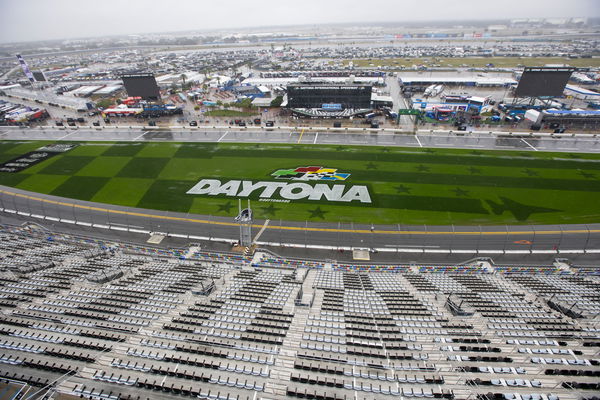
USA Today via Reuters
Feb 18, 2024; Daytona Beach, Florida, USA; Overall view of empty grandstands at the start finish line in the tri-oval as it rains following the postponement of the Daytona 500 to Monday due to rain at Daytona International Speedway. Mandatory Credit: Mark J. Rebilas-USA TODAY Sports

USA Today via Reuters
Feb 18, 2024; Daytona Beach, Florida, USA; Overall view of empty grandstands at the start finish line in the tri-oval as it rains following the postponement of the Daytona 500 to Monday due to rain at Daytona International Speedway. Mandatory Credit: Mark J. Rebilas-USA TODAY Sports
As sports evolve, leagues are constantly finding new ways to immerse fans in their experience. The NBA has introduced virtual reality replays, the NFL integrates augmented reality overlays, and Formula 1 has dramatically improved its digital presence with real-time data and innovative broadcasting techniques. These advancements cater to a new generation of fans who expect interactive and high-tech viewing experiences. NASCAR, with its crown jewel, the Daytona 500, once was a dominant force in sports coverage but has lagged behind in this evolution.
Along with that, there was a time when NASCAR had a crazy pull amongst the Hollywood elites. But over the years that has changed, with now NASCAR getting a lukewarm reception from celebs. However, all of that may be about to change.
ADVERTISEMENT
Article continues below this ad
A new era of NASCAR’s Daytona 500 experience and a superhero surprise
For the first time, a NASCAR race will be broadcast at Cosm’s shared-reality venues in Los Angeles and Dallas, starting with this weekend’s Daytona 500. This marks a significant step toward modernizing NASCAR’s presentation and engaging tech-savvy fans.
Cosm is an immersive, next-generation venue that blends live-action sports with state-of-the-art visual displays, allowing fans to feel as though they are at the race without ever leaving their city. The experience creates a 360-degree viewing environment, making fans feel the rush of stock cars at high speeds, even if they’re thousands of miles away from the track. By partnering with Cosm, NASCAR is bringing its product into the digital age and capturing a broader audience.
But that’s not the only surprise.
NASCAR also announced that Anthony Mackie, the current Captain America in the Marvel Cinematic Universe, will serve as the Grand Marshal for the 2025 Daytona 500. The announcement was made through a fun Instagram video featuring Captain America’s iconic shield soaring through the air before crashing into the Daytona 500 trophy, captioned: “See you at the track, Cap.”
View this post on Instagram
What’s your perspective on:
Can NASCAR's new tech-savvy approach bring back the Hollywood glamor it once enjoyed?
Have an interesting take?
Mackie’s appearance continues a tradition of high-profile Grand Marshals. In 2014, Chris Evans, the original Captain America, took on the role ahead of Captain America: The Winter Soldier’s release. Over the years, NASCAR has seen celebrities like Matthew McConaughey, Charlize Theron, and Tom Cruise take on the role, making it a highly anticipated moment for fans. The move signals a possible resurgence of NASCAR’s pop culture relevance, which is a key ingredient in attracting younger audiences.
Trending
NASCAR’s struggle to stay relevant in pop culture
At one point, NASCAR had a strong foothold in pop culture. The sport frequently attracted A-list celebrities, major Hollywood integrations, and mainstream media attention. Blockbuster films like Talladega Nights: The Ballad of Ricky Bobby had collaborations with stars like Dale Earnhardt Jr. and Jeff Gordon in commercials and TV appearances, helped make NASCAR a household name.
ADVERTISEMENT
Article continues below this ad
However, over the last decade, that influence has waned. Unlike the NBA or NFL, which continue to draw celebrities to games and events, NASCAR has seen fewer stars engaging with the sport. The decline in crossover appeal has contributed to a dip in young fans attending races and following the sport.
That may be changing now as NASCAR heads for a new age. And they did something similar via a certain collaboration last year.
LegacyHistoryPride is a provider of authentic fashion and apparel that celebrates and supports America’s Historically Black colleges and universities had announced it’s collaboration with NASCAR in October 2024. The idea behind his collaboration was to blend the culture, legacy, and spirit of HBCUs with the fast-paced world of NASCAR.
ADVERTISEMENT
Article continues below this ad
The officially licensed collection was set to feature a custom-designed, co-branded “pit crew jersey” (each sporting the year that particular institution was founded) for 12 different HBCUs- Claflin University, Clark Atlanta University, Grambling University, Howard University, Morehouse College, Morgan St. University, N.C Central University, Norfolk State University, Prairie View A&M University, VA State University, and Winston-Salem State University.
With this, NASCAR is making a calculative effort to reestablish its mainstream relevance. If these moves are successful, they could signal the beginning of a new era where NASCAR regains its lost cultural pull, attracting not only die-hard racing enthusiasts but also a new generation eager for high-tech entertainment and blockbuster collaborations.
ADVERTISEMENT
ADVERTISEMENT
ADVERTISEMENT
ADVERTISEMENT


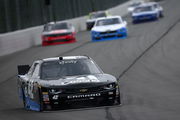
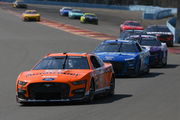
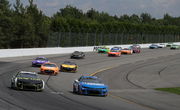
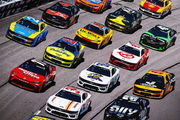

Can NASCAR's new tech-savvy approach bring back the Hollywood glamor it once enjoyed?